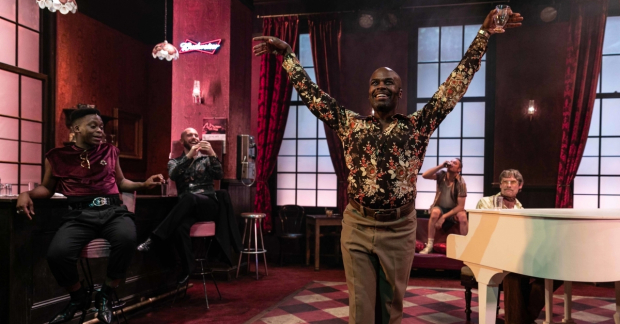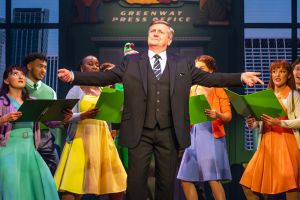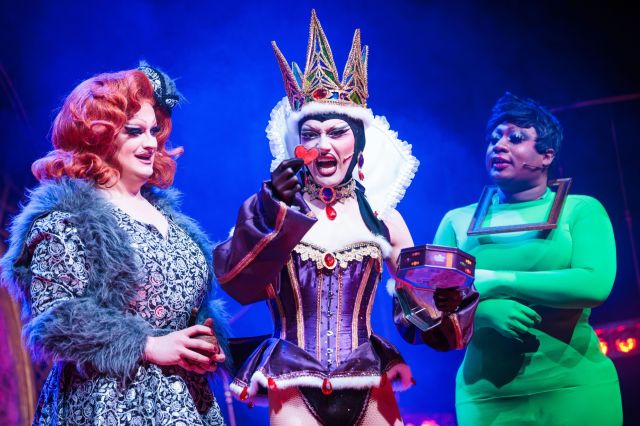Review: The View UpStairs (Soho Theatre)
Max Vernon’s 2017 musical has its UK premiere at the Soho Theatre

© Darren Bell
Gay rights have taken a pummeling of late. Yes, on the positive side, MPs just voted to extend same-sex marriage rights to Northern Ireland. But such victories stand in stark contrast to the likes of homophobic attacks on buses and social attitudes surveys that show prejudice is on the rise. We're better off than we were in the past, yes – but there's still much to keep fighting for.
That's the central message of Max Vernon's 2017 musical The View UpStairs, which is staging its European premiere at the Soho Theatre after running in America and Australia. It opens a channel of communication between present and past by revisiting the UpStairs Lounge, a New Orleans gay bar that was the object of a homophobic arson attack in 1973 in which 32 people were killed. Millennial "influencer" Wes is buying the burnt-out bar in the contemporary day, but once his estate agent has left – and in a Time Lord-esque feat that's best not scrutinized too deeply – he's transported back to the day before the fire.
Around him unspools a warm scene that is painfully at odds with the bar's tragic fate. Blokes in bell-bottoms hammer away happily at the piano; a drag queen gets his make-up done by his fiercely Catholic – but also fiercely supportive – mother; a proudly butch barmaid serves up drinks and eloquent put-downs. Wes has his eyes opened to the reality of being gay in the '70s – along with how dating's evolved: he recoils from love interest Patrick exclaiming "I haven't seen any photos of you!"
Wes's portrayal as an anxiety-ridden, smartphone-addicted member of Generation Y is colossally stereotyped. And the show too often veers into over-obvious lectures about the mercenary modern world. ("That is not community, that's commerce," Patrick says of Wes's plans to reinvent the bar as his "flagship store").
But what the script lacks in subtlety, Jonathan O'Boyle's production makes up for in performance. Along with singing immaculately, Tyrone Huntley captures Wes' simultaneous brashness and vulnerability. Garry Lee offers a rollicking turn in drag as Freddy. And I could have watched the effervescent Victoria Hamilton-Barritt, who plays his sweet but steely mother, all night. Staging wise, even though this feels ultimately like a play for a bigger stage, an economical set from Lee Newby and slick choreography from Fabian Aloise and Ruthie Stevens make sure nothing feels cluttered.
Vernon's score is consistent rather than catchy, and the play's polemic would have a deeper impact if it was served up with a tad more ambiguity. Nevertheless, this is both a moving elegy for the dead and a riotous call-to-arms to protect the hard-won victories of the gay rights movement.



















